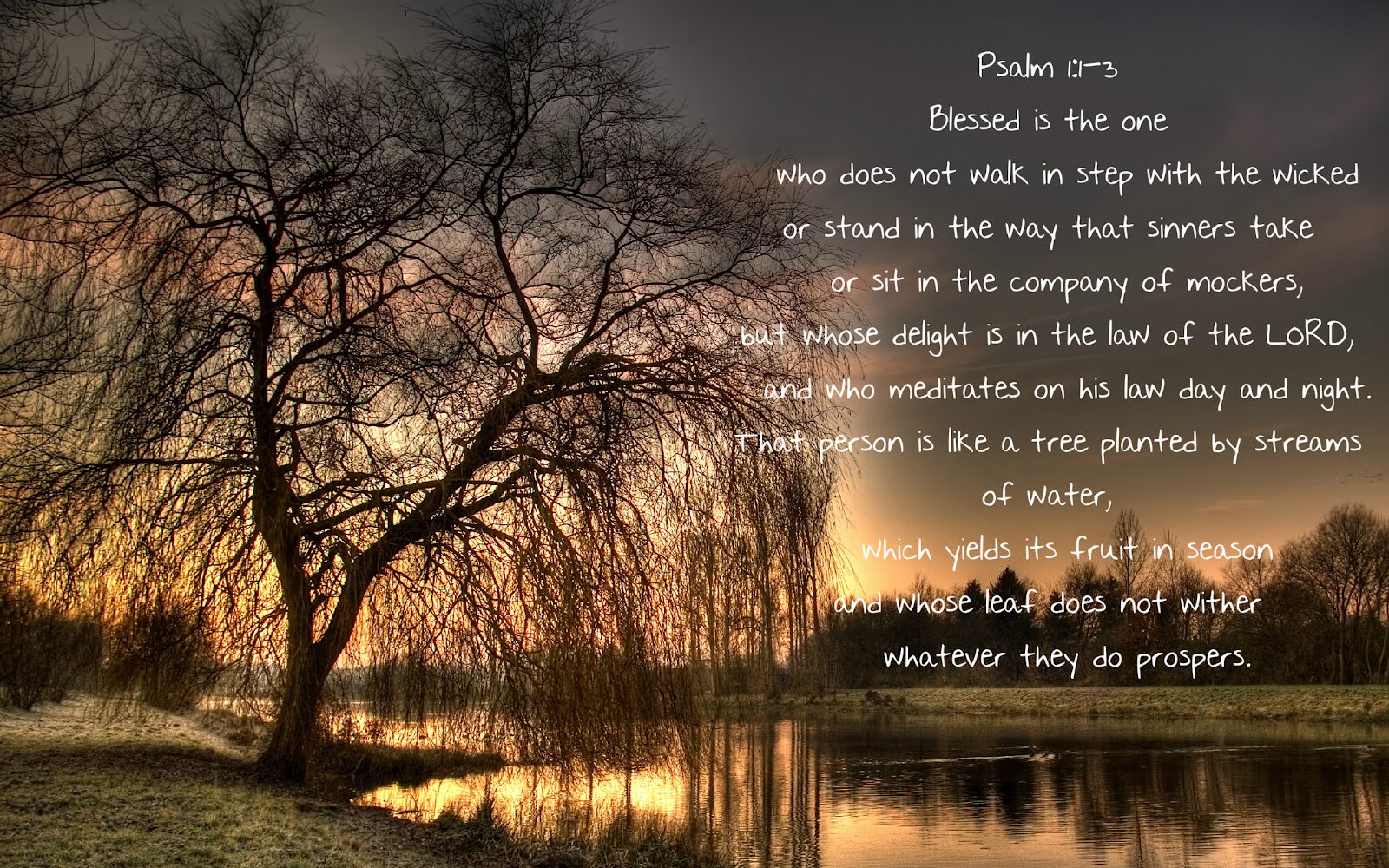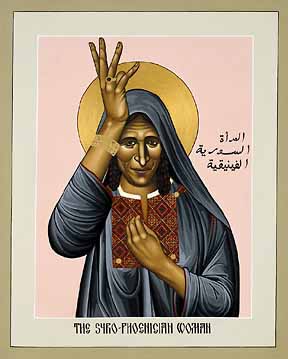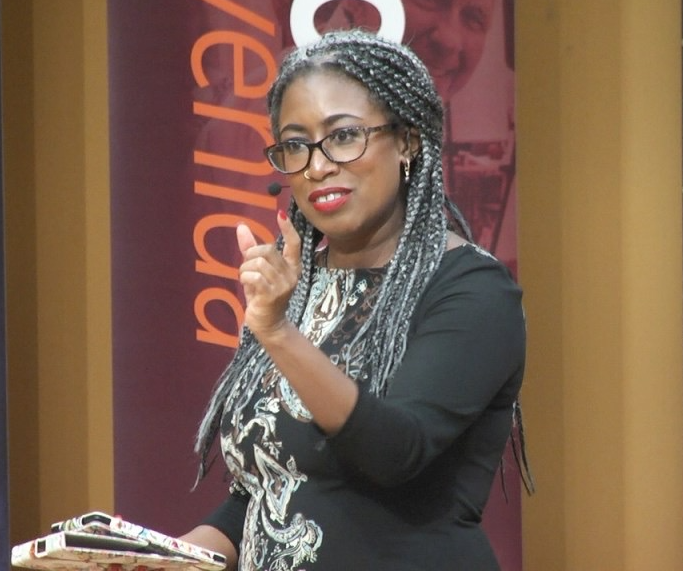
The Gospel lesson for this Sunday, Mark 10:1-12, contains this potent word from Jesus concerning marriage:
At the beginning of creation, God made them male and female. [see Gen 1:27] Because of this a man should leave his father and mother and be joined together with his wife, and the two will be one flesh.’ [see Gen 2:24] So they are no longer two but one flesh. Therefore, humans must not pull apart what God has put together (Mark 10:6-9).
Let me be very, very clear, friends: this passage has nothing to do with same-sex marriage. Nor does its parallel, Matthew 19:3-9 (see also Luke 16:18 and Matt 5:31-32). Now how can I, a self-avowed Bible Guy, say that? After all, doesn’t Jesus explicitly say here that marriage is between a man and a woman?

Actually, friends, this passage is not so much about “biblical marriage” as it is about biblical divorce. That is the question the Pharisees ask (“Does the Law allow a man to divorce his wife?”, Mark 10:2), and that is the subject of Jesus’ private discussion with his disciples afterwards (Mark 10:10-12). Jesus’ opposition to divorce is grounded in his high view of marriage: he vigorously affirms the goodness of marriage between women and men. Jesus’ words in context, however, are not restrictive and prohibitive (only this), but permissive and affirmative (yes to this). Jesus’ affirmation does not imply a prohibition: it is Jesus’ stated intent here to bolster marriage, not to define it by restriction to “one man and one woman.” After all, Jesus does not make this statement in response to a question about homosexuality, or polygamy, or sexual practice generally, but specifically in response to a question about divorce.
To understand this biblical conversation, and its relevance to our contemporary world, we first must understand the debate concerning divorce in Scripture and in Jewish tradition, and what Jesus’ response to this debate tells us about his approach to Scripture and tradition–and yes, to marriage and divorce.
The Old Testament takes marriage very seriously: after all, according to Gen 2:24, man and woman were created for one another, and are drawn to become “one flesh.” Still, in the Hebrew Bible, divorce is accepted, with no shame implied to the woman who is divorced (in that patriarchal culture, nothing is ever said of wives divorcing their husbands). The divorced daughter of a priest can return to her father’s house and eat from the offerings restricted to the priests and their families (Lev 22:13), and oaths sworn by divorced women have legal standing (Num 30:9). True, according to Leviticus 21:7, 13-14, no priest may marry a divorced woman. But this restriction on priestly marriages clearly implies that other Israelite men could marry divorced women. The law concerning divorce (Deuteronomy 24:1-4) assumes this, although it places a restriction on remarriage:
Let’s say a man marries a woman, but she isn’t pleasing to him because he’s discovered something inappropriate about her. So he writes up divorce papers, hands them to her, and sends her out of his house. She leaves his house and ends up marrying someone else. But this new husband also dislikes her, writes up divorce papers, hands them to her, and sends her out of his house (or suppose the second husband dies). In this case, the first husband who originally divorced this woman is not allowed to take her back and marry her again after she has been polluted in this way because the LORD detests that. Don’t pollute the land the LORD your God is giving to you as an inheritance.
Again, in the Hebrew Bible, divorce is an accepted practice. The exception that proves the rule is Malachi 2:15-16:
Don’t cheat on the wife of your youth
because he hates divorce,
says the LORD God of Israel
The Hebrew of the Masoretic Text (or MT, the text used in the synagogue, on which our Old Testament is based) reads ki-sane’ shalakh (“For he [God] hates divorce”). But the oldest Hebrew text of Malachi extant, from the Dead Sea scrolls at Qumran, reads instead ky ‘m snth shlkh: “But if you hate her, then divorce” (4QXIIa)! That alternate reading is also reflected in many ancient translations from the Hebrew (called, in scholarly shorthand, “the versions”). Targum Nebi’im, the Aramaic translation of the Prophets for use in the synagogue, reads ’arey ‘im senet lah patrah (“For if you hate her, you shall divorce her”). Similarly, the Greek of the Septuagint reads alla ean misesas exaposteiles (“if, since you hate her, you send her away”), and the Latin Vulgate reads cum odio habueris dimitte (“when you hate her, put her away”).
Usually, such broad attestation for a different reading would call the MT into question. However, the alternate reading is here unlikely to be the original, as it conflicts with the emphasis on faithfulness and commitment in both the broader context of Malachi 2:10-16 and in the remainder of the verse in which it appears. Further, it is far more likely that this alternate reading attempts to deal with the difficult text in the MT of Malachi 2:16 than that the MT resulted from deliberate alteration or scribal error.
What makes Malachi 2:16 difficult isn’t any problem with its wording, grammar, or syntax, which are all clear, but rather the problem is its meaning. The alternate reading represented in 4QXIIa and the versions is more in keeping with the whole of Scripture. Everywhere else in the Hebrew Bible, as we have seen, divorce is accepted. So in its biblical context, Malachi 2:16 is an anomaly–if it applies to actual divorce.
But if this verse concerns metaphorical divorce, then there is no anomaly. The point of the passage then would be that God calls Judah to covenant faithfulness, without wavering. With Julia O’Brien (Nahum, Habakkuk, Zephaniah, Haggai, Zechariah, Malachi, AOTC [Nashville: Abingdon, 2004], 299-303), I would argue that in Malachi 2:10-16, as in Hosea 1–2, marriage is understood symbolically, as faithfulness to the LORD. “The wife of your youth” would then be the life of faith and commitment abandoned by Judah in its idolatry (see Mal 2:5-7; 3:5), a life that was expected to bear fruit in righteousness (“divine seed” [Hebrew zera’ ‘elohim] in Mal 2:15; still thinking of actual marriages, CEB has “godly offspring”). Like other prophets (see Isa 50:1; Jer 3:1, 8), Malachi uses the law concerning divorce in Deuteronomy 24 metaphorically, to condemn Israel for worshipping other gods, then thinking that they can return to the LORD as though nothing had happened .
While we can imagine that divorce was intended to be rare, no statement of the acceptable grounds for divorce is ever given in the Old Testament. Deuteronomy 24:1 only says that a man can divorce his wife (again, no provision is made for a woman divorcing her husband!) if he finds “something inappropriate about her.” The Hebrew word translated “something inappropriate” is ‘erwah: literally “nakedness;” or “something shameful.” But what does that mean? Since the Hebrew Bible doesn’t clearly specify the conditions under which divorce is permissible, the rabbis debated the issue intensely.
The alternate reading for Malachi 2:16 in 4QXIIa, reflected in all the versions of this passage, sounds very like the teaching of Jewish sage Jesus ben Sirach:
Do you have a wife who is a soul mate?
Don’t divorce her,
and don’t trust yourself to a woman
whom you hate (Sir 7:26).
Ben Sirach believed that a good marriage was cause for celebration and lifelong commitment. But he implies that divorce could be pursued for incompatibility.
Two Jewish teachers who lived at roughly the same time as Jesus, Hillel and Shammai, were famous for their disputations. According to the Mishnah (b Gittin 9.10), Rabbi Shammai argued that divorce could be permitted only in the case of adultery, where the commitment had already been broken by unfaithfulness. But Rabbi Hillel taught that bad cooking is sufficient grounds for divorce! In Hillel’s view, as a human contract, marriage could be dissolved for any reason at all.
In contrast, Jesus’ teaching rejects the law in Deuteronomy, and so rejects divorce and remarriage, altogether: “Any man who divorces his wife and marries another commits adultery, and a man who marries a woman divorced from her husband commits adultery” (Luke 16:18; compare Matt 5:31-32). To understand Jesus’ teaching, we should note that in Palestine in Jesus’ day, women could not independently own property. Divorce meant that the woman would be dependent upon the chancy charity of her family or her community to support her. She could be rendered homeless and destitute by her husband’s rejection.
The law regarding divorce, in Jesus’ view, reflects not God’s good will, but rather a concession to human failing. “Moses allowed you to divorce your wives,” Jesus says, “because your hearts are unyielding. But it wasn’t that way from the beginning” (Matt 19:8; compare Mark 10:5). Jesus sets the law in Deuteronomy 24 aside and rejects divorce in order to protect women from being cast out at their husbands’ whims. He bases this action on an earlier passage in Torah: Genesis 2:24. God’s original intention for women and men expressed in Genesis is a higher principle than Deuteronomy’s permission for men and women to divorce. Jesus’ opposition to remarriage shows that he understood marriage to be a permanent commitment.
The varying forms and contexts in which Jesus’ teaching on divorce and remarriage is found across the New Testament indicate that the debate about that teaching continued in the earliest church. Indeed, Matthew 19:10-12 describes the high standard Jesus sets for marriage as an ideal, not as a law: “Not everybody can accept this teaching, but only those who have received the ability to accept it. . . . Those who can accept it should accept it.” In Matthew 19:9 and 5:31-32, divorce is permitted in cases of adultery, just as Shammai had argued–although remarriage is still rejected. In the gospel of Mark, which may have been written in Rome, the saying reads, “Whoever divorces his wife and marries another commits adultery against her; and if a wife divorces her husband and marries another, she commits adultery” (Mark 10:11-12). This differs from the Old Testament and traditional Jewish position, and places Jesus’ teaching in the context of Roman law, which permitted a woman to initiate a divorce. Likewise Paul (see 1 Cor 7:10-16), who cites Jesus’ teaching on divorce (one of the few places where the words of Jesus are cited in Paul’s letters), recognizes that in the Roman world a wife could divorce her husband.

Paul also forbade divorce because he was convinced that the world would end soon, making any attempt to change one’s present status a waste of time:
This is what I’m saying, brothers and sisters: The time has drawn short. From now on, those who have wives should be like people who don’t have them. Those who are sad should be like people who aren’t crying. Those who are happy should be like people who aren’t happy. Those who buy something should be like people who don’t have possessions. Those who use the world should be like people who aren’t preoccupied with it, because this world in its present form is passing away (1 Cor 7:29-31).
Clearly the world did not end in the first century. But Paul’s teaching on divorce and remarriage still follows the teaching of Jesus. So shouldn’t the plain teaching of Scripture on this issue bind us? Aren’t all divorced and remarried people today therefore living in sin?
Few of us would want to say so. I have members of my own family, as well as dear friends, who are divorced and remarried. I cannot imagine going to them and announcing that their marriages are invalid, and their children illegitimate! Indeed, in the United Methodist church, as in most other Protestant churches, divorce and remarriage are permitted. The United Methodist Social Principles state:
when a married couple is estranged beyond reconciliation, even after thoughtful consideration and counsel, divorce is a regrettable alternative in the midst of brokenness. . . . Divorce does not preclude a new marriage. We encourage an intentional commitment of the Church and society to minister compassionately to those in the process of divorce, as well as members of divorced and remarried families, in a community of faith where God’s grace is shared by all.
Remember that, despite the law, Jesus stood up for women in his day by condemning divorce and re-marriage. Clearly he did not read his Bible, even the Torah, uncritically and legalistically. Why, then, should we think that Jesus would expect us to read Scripture in a way that he did not?
For Jesus, marriage deserves our highest respect and regard. Is his affirmation of marriage a condemnation of same-sex relationships? I see no reason to think so. Jesus’ point is that the partners in any marriage are to be radically committed to one another, which is an excellent model for same-sex marriages as well as for heterosexual marriages.
I remember repeating, in more weddings than I can now recall, the words of our traditional marriage service: H0ly matrimony
is an honorable estate, instituted of God, and signifying unto us the mystical union between Christ and his church; which holy estate Christ adorned and beautified with his presence at the wedding in Cana of Galilee. It is therefore not to be entered into unadvisedly, but reverently, discretely, and in the fear of God.
Given the radical commitment to one another that Christian marriage involves, neither marriage nor divorce should ever be casual decisions! In our day as in Jesus’ day, love for God and respect for the rights and happiness of all people requires an approach to all of life–including marriage, remarriage, and divorce–faithful to the living spirit rather than the rigid letter of Scripture.
AFTERWORD: For more on Malachi 2:10-16, see my commentary, Reading Nahum-Malachi, Reading the Old Testament (Macon, Ga: Smith-Helwys, 2016), 243-47. For more on my position regarding LGBTQ+ persons and the Bible, enter “homosexuality” in the Search window to be taken to blogs where I have discussed the Bible passages usually cited in this discussion at length–particularly the Gospel passages (much of this blog is adapted from that one!) and the Genesis texts.











